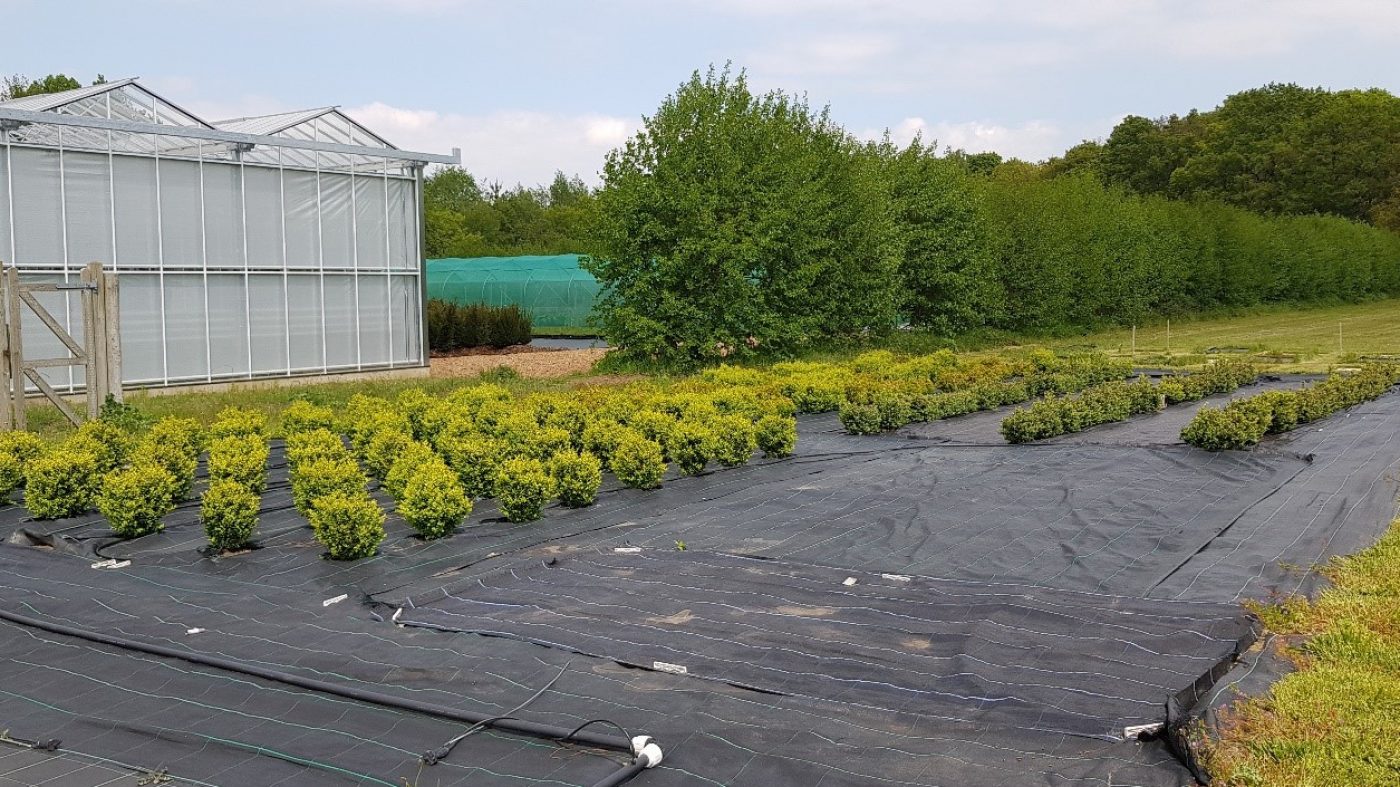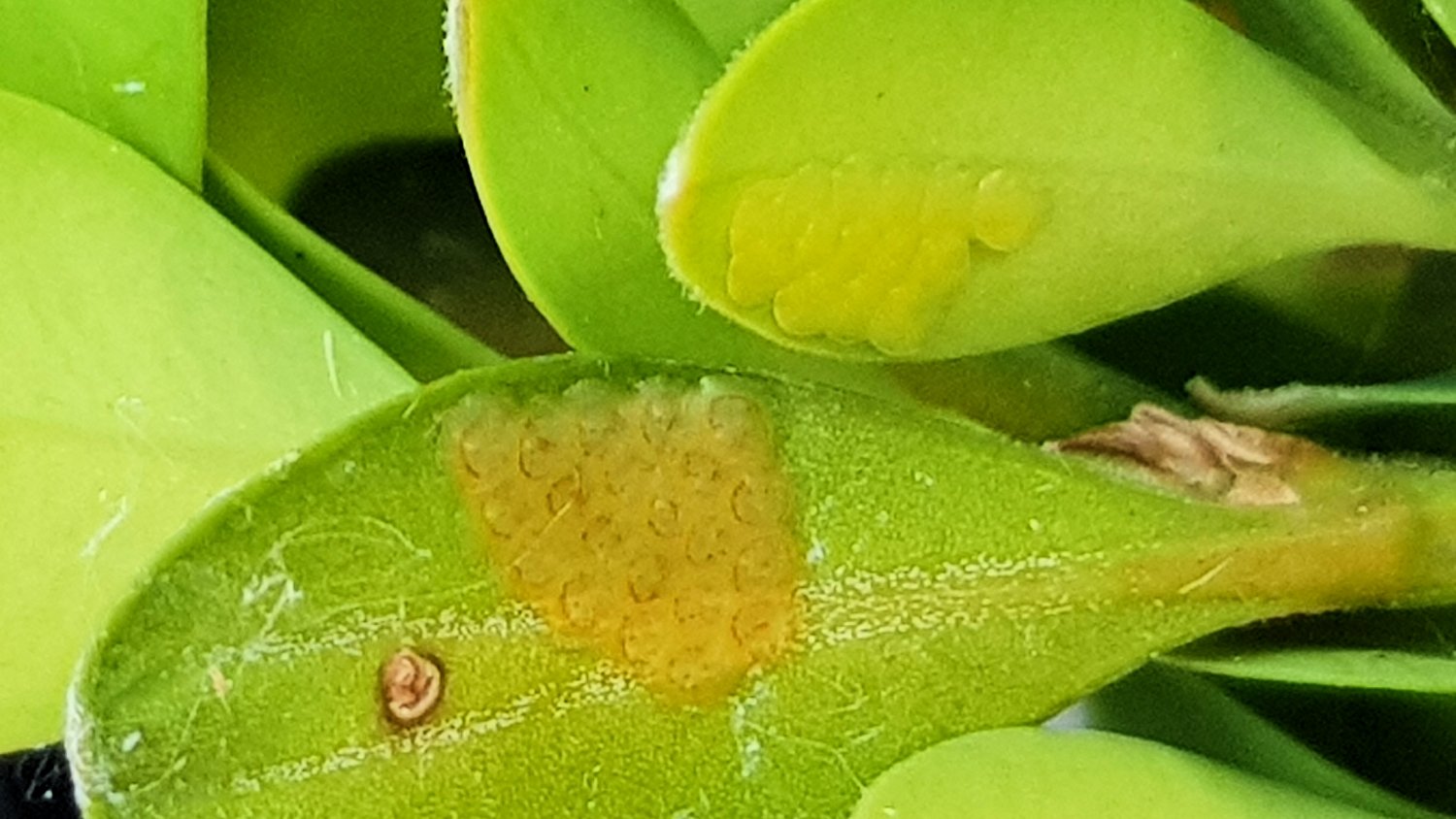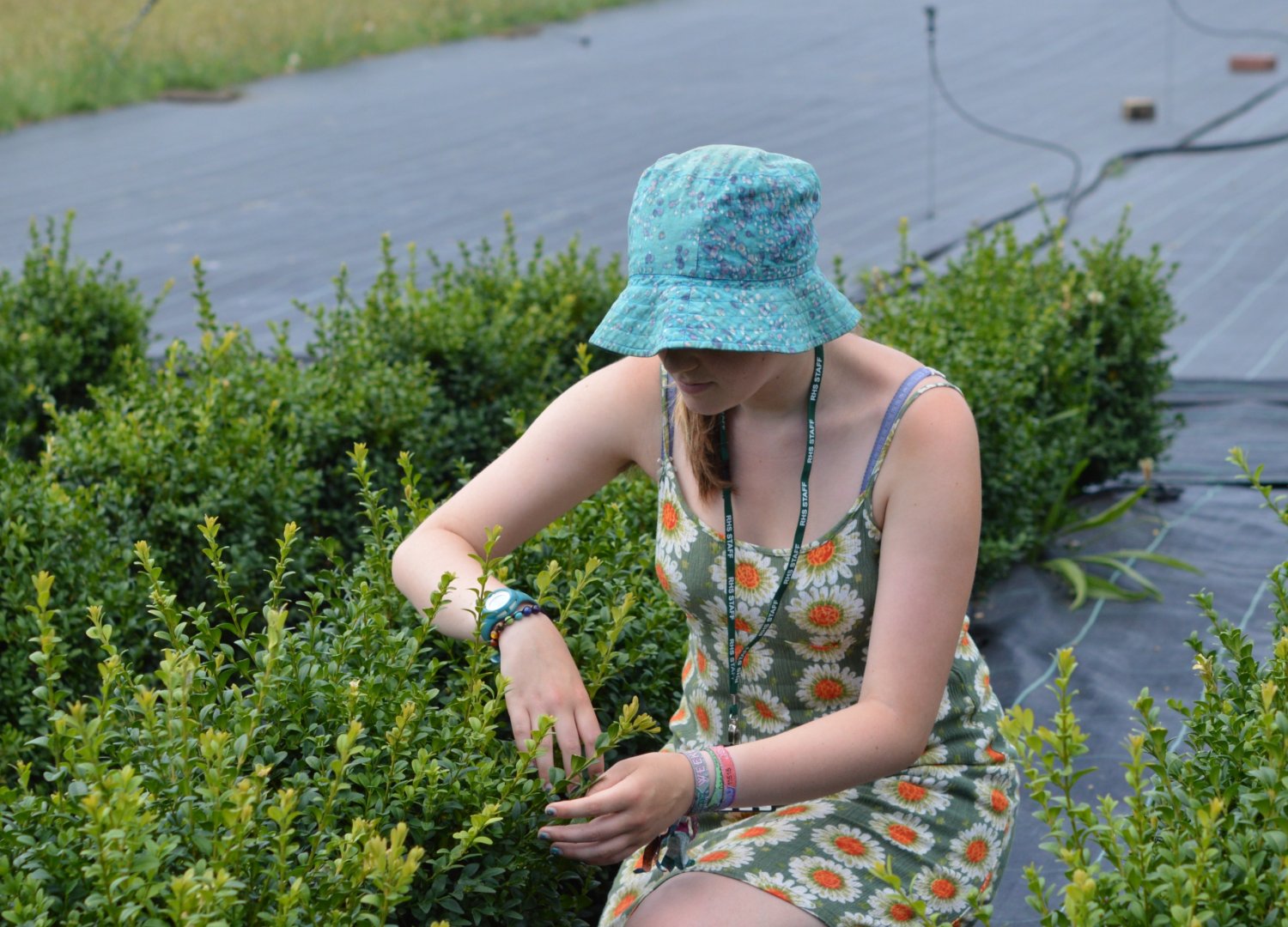RHS Box Moth research, a qualified result
Last year EBTS UK helped fund a project conducted by the RHS at Wisley that was a three pronged investigation into things that might affect egg laying by Box Tree Moths (BTM). Research like this takes a lot of time consuming effort, so a summer student, Colleen Sellwood from Newcastle University, was taken on to help Dr Bird & Dr Cromey collect and assess the data.
Plant architechture or shape, cultivar types and severity of pruning formed the three prongs of the approach. The shapes tested were Buxus balls and cubes, the cultivars were B. sepervieriens, B. suffruticosa and B. microphylla ‘Faulkner’ and pruning was carried out as minimal, medium and high.
To collect the data, each plant was assessed for a fixed amount of time and every time a leaf with eggs on it was found the stop watch was paused to allow the counting on the number of eggs, which are less than a millimeter across. Once done, the stop watch was restarted and this continued until the plants allowed assessment time was up.
The full report is available to download below, here is part of the conclusion:
…of the parameters trialled, only cultivar type has an affect on C. perspectalis oviposition, and the other factors investigated in this study do not affect oviposition for this species. For gardeners and commercial growers this suggests that the best way to reduce C. perspectalis infestation is to grow the ‘Faulkner’ cultivar…
As with blight it appears that B. microphylla ‘Faulkner’ might give a little help against the ravages of the box tree moth assuming you are OK with its growing habit.
EBTS UK is keen to support research into boxwood related issues, so if you are associated with a project that need either effort or funding support, please contact chairman@ebts.org





